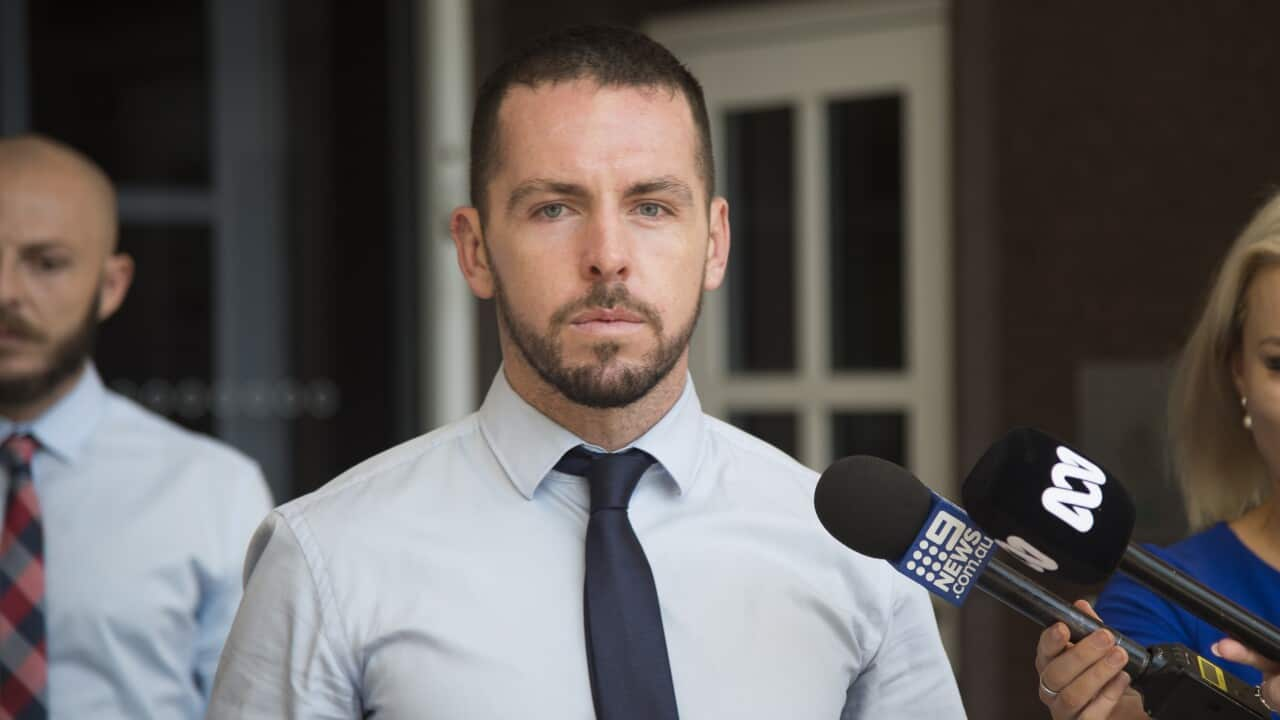During a gruelling two-day opening, counsel assisting the coroner Dr Peggy Dwyer has painstakingly detailed the enormous brief of evidence to be investigated during the three-month coronial inquest into the death of a Warlpiri teenager.
Kumanjayi Walker was shot dead by NT Police Officer Zachary Rolfe during an attempted arrest in the remote community of Yuendumu in November 2019.
Constable Zachary Rolfe was tried for murder and two alternative charges in the NT Supreme Court in Darwin, and unanimously acquitted by the all-white jury.
Inquest's remit subject to late objections by Rolfe
As a death in custody, the fatal shooting of Kumanjayi Walker by a police officer is the subject of a coronial inquest, which has broad powers to investigate and make recommendations.
The coroner has outlined seven main areas for investigation, but in her opening statement counsel assisting the coroner Dr Peggy Dwyer has held back detail in some areas of evidence, saying they were subject to late objections.
Objections submitted by Constable Rolfe’s legal team haven’t been released to media, but Dr Dwyer outlined some of the issues affected.
“The issues list reads: 'Did Constable Rolfe and other police based in Alice Springs discriminate against Indigenous Australians?; is there evidence that Constable Rolfe and other police officers based in Alice Springs had a negative attitude towards community police?; and is there any evidence of systemic racism or cultural bias in the NT Police Force?'” Dr Dwyer told the inquest.
She said text messages sent between Constable Zachary Rolfe and other police officers suggests there is.
“Some of those text messages do suggest negative attitudes towards Aboriginal people that should and will cause great concern,” Dr Dwyer told the coroner.
She told the coroner, the texts were downloaded after the fatal shooting and are important to the inquest.
“The purpose is not to demonise those who sent the text messages, it’s not to publicly criticise them; it is to understand why those negative attitudes have formed,” Dr Dwyer said.
Dr Dwyer said the inquest should understand "what if any impact those attitudes might have on police behaviours".
“And to understand them, once we appreciate that some members of the police force have developed those negative attitudes, how do we prevent them developing?
“Is there a risk that if we don't, those attitudes may lead again to deadly confrontation?” Dr Dwyer asked the court.

Counsel assisting the Coroner Dr Peggy Dwyer. Source: Supplied
Also flagged today are objections in place around another group of text messages sent between Constable Rolfe and his colleagues after the shooting death of Kumanjayi Walker.
Dr Peggy Dwyer explained that in a death in custody investigation officers involved are directed not to discuss the evidence, meet or socialise with others involved.
She said the coroner will hear evidence that didn’t happen in this case, with officers meeting for a barbeque at Zachary Rolfe’s house two days after the death.
“Your Honor will have to consider the extent to which that may have impacted on the integrity of the coronial investigation,” she said.
Dr Dwyer told the coroner text messages on the issue were also sent between constable Rolfe and other police members but said those were also subject to an objection.
“It will be my submission to Your Honour, that the text exchanges in the immediate aftermath or the days that followed Kumanjayi’s death, or at least some of them, are relevant to the issue of the integrity.”
The inquest will hear legal arguments on objections this Friday.











